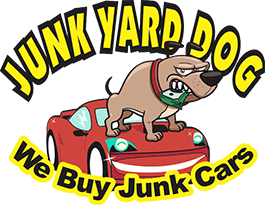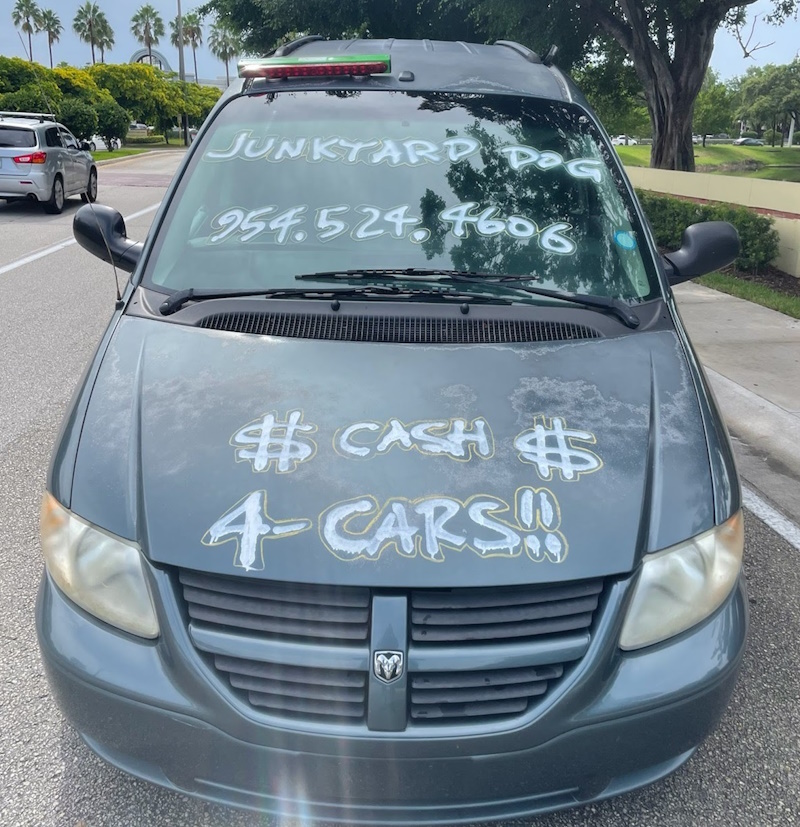Determining the best time to sell a junk car can be tricky, as there are many factors to consider. Factors such as the age, condition, and location of the car, as well as current market conditions, can all impact the value of the car and the demand for it.
Generally, the best time to sell a junk car is when you’re ready to proceed with the sale (and the car is clean of personal possessions) and you’ve already spoken to a reliable junkyard or salvage yard regarding the sale.
Below, we will explore some key factors to consider when deciding when to sell a junk car and some tips for maximizing its value.
What Are Factors That Affect the Sale of a Junk Car?
The age and condition of the car are two of the most important factors to consider when deciding when to sell a junk car. Generally, older cars with significant wear and tear are worth less than newer cars in good condition. If the car is in poor condition, it may be more difficult to sell and may be worth less than its scrap value.
The location of the car can also impact its value and demand. If the car is located in an area with many junkyards or scrap metal dealers, it may be easier to sell and may be worth more than if it is located in a remote area with fewer potential buyers.
The current market conditions for scrap metal and used car parts can also impact the value of a junk car. If the demand for scrap metal or used car parts is high, the car may be worth more than if the demand is low.
The time of year can also impact the value of a junk car. For example, winter may be a slower time for scrap metal and used car parts demand, which could result in a lower value for the car.
How Can You Maximize the Value of a Junk Car?
Please research to determine your car’s value before selling it. This can help you set a fair price and avoid being taken advantage of by buyers. Selling to a reputable buyer, such as a licensed junkyard or scrap metal dealer, can help ensure you get a fair price for your car.
If any valuable parts on the car can be removed and sold separately, such as a catalytic converter or battery, consider removing them before selling the car. This can increase the overall value of the car. Consider selling the car when demand for scrap metal and used car parts is high, as this can increase the car’s value. Be willing to negotiate on price, as this can help you sell the car more quickly and maximize its value.
Cleaning your car before selling it to a junkyard can help you get a better price and ensure a smoother transaction. A clean car looks more attractive to potential buyers than a dirty, cluttered one. By cleaning your car, you can make it more appealing to junkyard buyers, increasing the likelihood that they will be willing to pay a higher price. Cleaning your car can also help junkyard buyers better assess its value. When a car is clean, it is easier to see its condition and identify potential issues that may impact its value. This can help the buyer assess the car’s worth more accurately, resulting in a fairer price for you.
Cleaning your car also allows you to remove any personal belongings that may be inside. This is important for two reasons: first, it ensures that you don’t accidentally sell something valuable along with the car, and second, it makes the transaction smoother and faster. Junkyard buyers will appreciate not having to sort through your belongings before purchasing the car. Cleaning your car before selling it to a junkyard can also be safer for the environment. Cars full of debris and other materials can be more difficult to dispose of safely, as these materials can pose a risk to the environment. By cleaning your car, you can help ensure that it is easier to dispose of in an environmentally friendly way.
What Are Some Common Mistakes to Avoid When Selling a Junk Car?
Selling a junk car can be challenging, and sellers often make several common mistakes that can result in a lower sale price or a less-than-ideal experience.
Failing to prepare the car for sale can significantly reduce its value. Before selling the car, remove all personal belongings and clean them thoroughly. This can make the car more attractive to potential buyers and help you get a better price.
Failing to research the car’s value can lead to overpricing or underpricing. Research the car’s value to ensure you are pricing it appropriately and getting a fair price.
You must have proper documentation to sell a junk car in many states. Ensure you have the title, registration, and other necessary paperwork before listing the car for sale.
Selling to an untrustworthy buyer can result in a lower sale price or even legal issues. To ensure a smooth and fair transaction, sell to a reputable buyer, such as a licensed junkyard or scrap metal dealer.
Failing to negotiate on price can result in a lower sale price than you could have. Be willing to negotiate with potential buyers to get the best price possible.
Failing to remove valuable parts, such as a catalytic converter or battery, can result in a lower sale price. Remove these parts before selling the car to maximize its value.
Laws regarding the sale of junk cars can vary from state to state. Ensure you know your area’s laws before listing the car for sale to avoid any legal issues.
Providing inaccurate information about the car can lead to misunderstandings and a lower sale price. Be honest about the car’s condition, and provide accurate information to potential buyers.
Being inflexible on price or other terms can make it difficult to sell the car. Be willing to negotiate and be flexible on other terms to make the sale.
Determining the best time to sell a junk car requires careful consideration of various factors, including the age and condition of the car, location, market conditions, and time of year. By doing your research, selling to a reputable buyer, removing valuable parts, and being flexible on price, you can maximize the value of your junk car and ensure a smooth transaction. Ultimately, the best time to sell a junk car is when you are ready to part with it and have found a buyer willing to pay a fair price.

